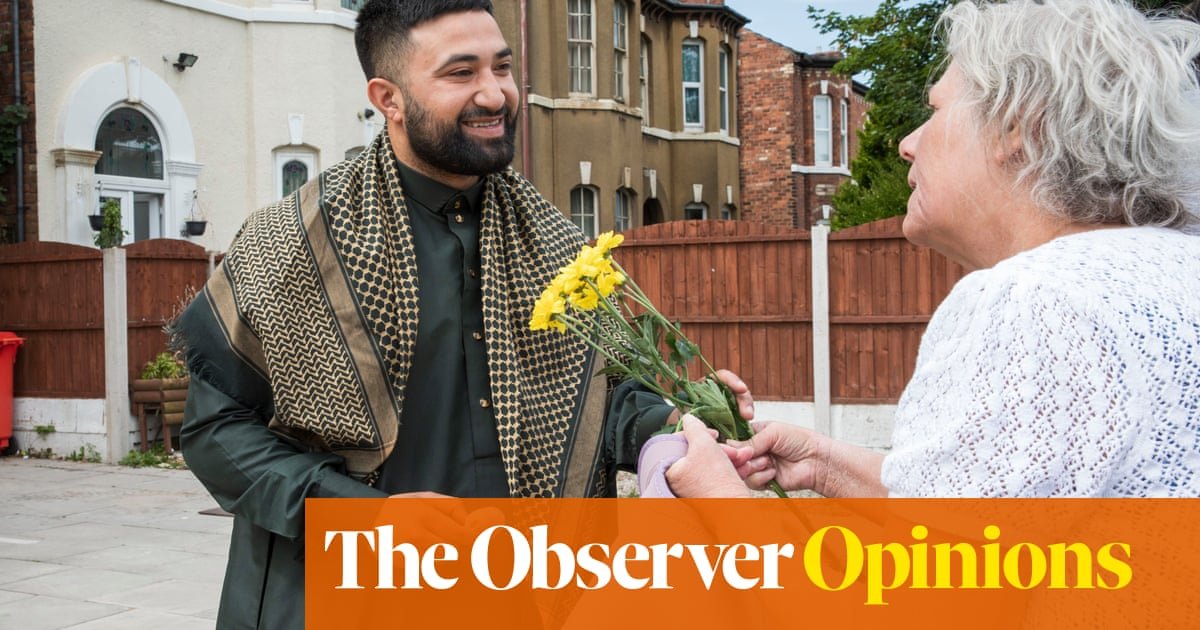Last Monday, three girls under the age of 10 were killed at a dance workshop for primary schoolchildren in a horrific knife attack that left eight more children and two adults seriously injured. A 17-year-old male has been charged with their murders. It was an act of unspeakable evil, a particularly terrible instance of the male violence against women and girls that is endemic in our society. In the days following the attack, their families and communities should have been left to grieve in peace; then, as the facts emerged about this particular attack, there should have been an informed conversation about what lay behind such appalling violence being directed at young girls and how to prevent this from happening again.
It was not to be. Far-right, racist thugs spread misinformation about the identity of the attacker, and in recent days have rioted in towns and cities across England in response to the murders, first descending on Southport itself just 36 hours after the attack, then in other places around the country including London, Hartlepool, Manchester, Aldershot and Sunderland. The mother of seven-year-old Elsie Dot Stancombe, one of the three girls murdered, issued an appeal on social media to “stop the violence” in Southport. The anti-racism organisation Hope Not Hate has tracked plans for up to 35 protests across the UK this weekend.
There is no doubt about the racist motive underpinning these riots. Far-right social media accounts, including from supporters of the now-defunct English Defence League (EDL), promoted false claims that the alleged attacker was an asylum seeker and called for nationwide protests in response. In Southport and Hartlepool, mosques was targeted. In London, rioters chanted: “We want our country back.”
In Aldershot and Manchester, men gathered outside hotels being used to house asylum seekers and were reported to have hurled bottles, rocks and bricks at police officers. Police and emergency services have been injured and property has been set alight and damaged: in Sunderland, a police building was ransacked and a fire started at the Citizens Advice office next door. Tell Mama, an organisation that monitors reports of Islamophobia, has called for the police to step up protection for mosques.
These riots will be used by some on the hard right of British politics who are anti-immigration and anti-asylum to shore up their belief that Britain is not a successful multi-ethnic society.
But they are wrong: there is plenty of evidence to show that, as levels of racism have declined in Britain over time, we enjoy relatively high levels of integration compared with many countries in Europe and the US. As the thinktank British Future has highlighted, there has been a sustained intergenerational fall in levels of prejudice, levels of residential segregation have gradually decreased in recent years and second-generation immigrant children outperform non-immigrant children at school.
But we live in a world where a tiny minority of racist individuals with thuggish tendencies can foment civil unrest more easily than ever on social media and via messaging apps. The far right no longer needs the organisational infrastructure it had to rely on in the past. The civil unrest we have seen in recent days has not been the product of clashes within local communities, but of people travelling to instigate trouble after absorbing misinformation about the identity of the Southport attacker. Analysis highlights how some of the claims originated on the messaging app Telegram, then spread to TikTok, X and Facebook.
This has been further fuelled by irresponsible interventions by Reform MPs. The day after the knife attack, Nigel Farage questioned in a video whether the truth about the attacker “is being withheld from us”, despite the fact that the police were clear they could not identify him at that stage because of his age. After the prime minister, Keir Starmer, on Thursday, called out the hatred that underpins the violence, Richard Tice attacked him for his entirely justified use of the term “far-right” to describe the perpetrators.
There is a risk that this brew of racist civil unrest curdles into something nastier. Starmer struck exactly the right tone in labelling the week’s events as an assault on the rule of law, and announcing an initiative to coordinate intelligence and action between police forces across the country.
after newsletter promotion
The government must also ensure that social media companies fulfil their legal obligations to prevent the spread of misinformation and further incitements to violence. And given the clear anti-Muslim hatred evident in the violence, the police must be properly resourced to provide mosques with the security they need.
After the far-right thugs left Southport on Wednesday evening, residents came together to clear up the debris and help rebuild damaged parts of the town’s mosque. It is they who represent the community, not the criminals who travelled to the town to exploit the murder of three young girls. Their actions should remind us that it is not just for the government to stand against the racist far right: it is a responsibility that falls on us all.
